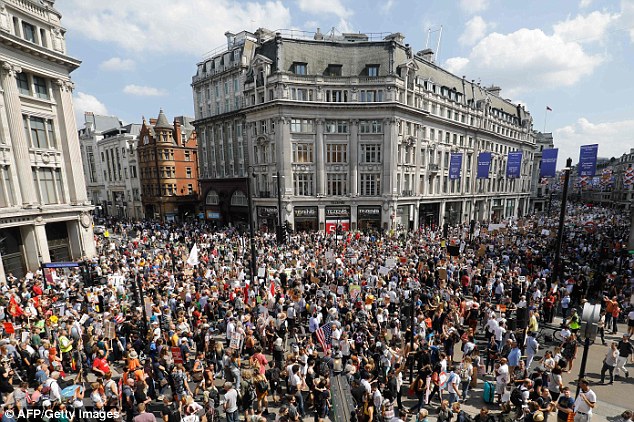There’s an exhibition going on in London at the moment which is all about the life of the sainted Nelson Mandela, and predictably, all the Usual Suspects are oohing and ahhing about it.
Well, far be it for me to piss in anyone’s lobster bisque, here, but let’s have a little perspective on the man and his doings, shall we? Brace yourselves.
“Today I don’t mourn Mandela’s passing. Instead, today I think of the people he murdered. I think of them lying in their graves while for years he drank champagne and was fettered on the international stage as some kind of living god. I think of all the people who have died since he became president of South Africa. All the farmers, all the elderly, all the men, women and especially all the children, who died as a result of him being unleashed onto South Africa.
“And while the brainwashed celebrate his life and his so-called achievements, I remember that he pleaded guilty to 156 counts of public violence, including mobilizing terrorist bombing campaigns, which planted bombs in public places. Many innocent people including women and children died because of Mandela and his MK terrorists. For that he wasn’t hung by the neck until dead — instead he was given a life sentence in jail, the biggest mistake ever made by the South African judiciary. For it gave the ANC time to white-wash his history and remake Mandela into a freedom fighter. And with the help of Communists around the Western world, the reincarnation of Mandela the freedom fighter and Black activist was achieved.
“I’ll remember too that he released thousands of criminals, murderers and rapists from jail every year to celebrate his birthday while president, unleashing even more violence, chaos and death on the people of South Africa. I’ll remember Mandela supporting some of the worst dictatorships and human rights abusers in the world: Fidel Castro, Ghaddafi in Libya, China, Suddam Hussein in Iraq, Robert Mugabe in Zimbabwe… the list goes on. No one too evil to visit or welcome in South Africa by Mandela, yet he was celebrated as a human rights champion by the world.
“I’ll remember that over 100,000 people were murdered under Mandela’s presidency –- an average of 25,000 people each year. Up from 170 each year under Apartheid (1948-1989). I’ll remember that in the first four years of his presidency, the South African currency lost 80% of its value and 2.8 million working days were lost due to strikes. I’ll remember that the national debt doubled under Mandela.
“Yes , I will remember the failure that the man Nelson Mandela was. Not the magical myth we’re supposed to believe in. The world may have repackaged and re-branded him, but underneath he’s still the same murdering terrorist and Communist he always was.” — Lauren Southern
And there’s not one single falsehood in any of that.
Some saint.





